The Yanks Are Coming is a american film of genre Documentary directed by Marshall Flaum released in USA on 4 november 1963 with Richard Basehart
The Yanks Are Coming (1963)
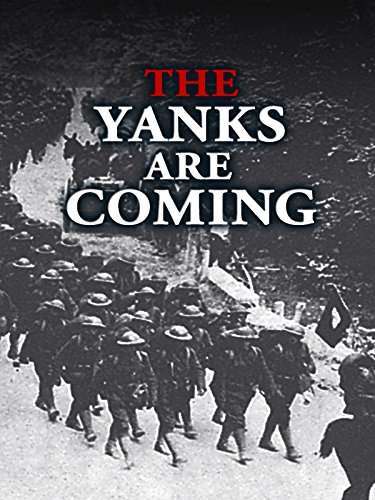
If you like this film, let us know!
The Yanks Are Coming is a 1963 American documentary film produced by Marshall Flaum. It was nominated for an Academy Award for Best Documentary Feature. Marshall Flaum wrote, produced and directed the documentary about the American involvement in World War I.
Actors

Richard Basehart
(Narrator (voice))
Comments
Leave comment :
Suggestions of similar film to The Yanks Are Coming
There are 51 films with the same actors, 2 films with the same director, 8977 with the same cinematographic genres, 1560 films with the same themes (including 1019 films with the same 2 themes than The Yanks Are Coming), to have finally 70 suggestions of similar films.If you liked The Yanks Are Coming, you will probably like those similar films :
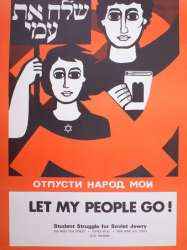 , 1h
, 1hDirected by Marshall Flaum
Origin USA
Genres Documentary
Themes Films about immigration, Films about religion, Documentary films about law, Documentaire sur une personnalité, Documentary films about religion, Films about Jews and Judaism
Actors Richard Basehart
Rating68%





 , 3h
, 3hDirected by Mel Stuart
Genres Documentary, Historical
Themes Documentary films about war, Documentary films about historical events, Political films, Documentary films about World War II
Actors Richard Basehart
Rating78%





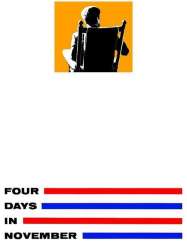
Four Days In November (1964)
, 2h2Directed by Mel Stewart, Mel Stuart
Origin USA
Genres Documentary
Themes Films about families, Documentary films about law, Documentary films about historical events, Documentaire sur une personnalité, Documentary films about politics, Political films
Actors Richard Basehart
Rating74%





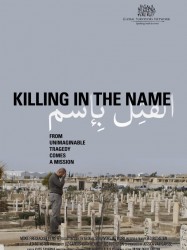
Killing in the Name (2010)
Origin USA
Genres Documentary
Themes Films about religion, Films about terrorism, Documentary films about law, Documentary films about war, Documentary films about historical events, Documentary films about politics, Documentary films about religion, Documentary films about terrorism, Political films, Films about Islam
Rating67%






La Mort de la gazelle (2008)
, 45minutesOrigin France
Genres Documentary
Themes Films set in Africa, Documentary films about war, Documentary films about historical events
Since the late 1980s, a sporadic guerrilla war has plagued northern Niger somewhere in the Sahara. In 2007, a group of armed men attacked an army barracks. They claimed to be from the Niger Movement for Justice (NMJ). Hundreds of men then joined the movement. Jérémie Reichenbach films some of these men, ready to fight in a very uncertain atmosphere, between war and peace. Under duress of an invisible enemy, isolated from the rest of the world, they wait for the fight.

Lioness (2008)
, 1h21Origin USA
Genres Documentary
Themes Documentary films about war, Documentary films about historical events, Political films, United States Armed Forces in films
Rating72%





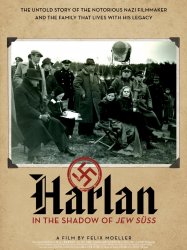 , 1h39
, 1h39Genres War, Documentary
Themes Documentary films about business, Documentary films about the film industry, Documentary films about war, Documentary films about historical events, Documentaire sur une personnalité, Documentary films about politics, Political films, Documentary films about World War II
Actors Veit Harlan, Hilde Körber, Christiane Kubrick, Kristina Söderbaum
Rating68%





 , 52minutes
, 52minutesGenres Documentary
Themes Films about slavery, Films about racism, Documentary films about racism, Documentary films about law, Documentary films about war, Documentary films about historical events, Documentaire sur une personnalité, Political films, Disaster films
Frederick Douglass and the White Negro is a documentary telling the story of ex-slave, abolitionist, writer and politician Frederick Douglass and his escape to Ireland from America in the 1840s. The film follows Douglass' life from slavery as a young man through to his time in Ireland where he befriended Daniel O'Connell, toured the country spreading the message of abolition and was treated as a human being for the first time by white people. His arrival in Ireland coincided with the Great Famine and he witnessed white people in what he considered to be a worse state than his fellow African Americans back in the US. The film follows Douglass back to America where he buys his freedom with funds raised in Ireland and Britain. Fellow passengers on his return journey include the Irish escaping the famine who arrive in their millions and would go on to play a major role in the New York Draft Riot of 1863 which Douglass could only despair over. The film examines (with contributions from the author of How The Irish Became White Noel Ignatiev amongst others) the turbulent relationship between African Americans and Irish Americans during the American Civil War, what drew them together and what drove them apart and how this would shape the America of the twentieth century and beyond.

Flower in the Gun Barrel (2008)
Origin USA
Genres Documentary
Themes Films set in Africa, Films about racism, Documentary films about racism, Documentary films about law, Documentary films about war, Documentary films about historical events, Documentaire sur une personnalité, Documentary films about politics, Political films
Rating80%





To a large extent, the film consists of interviews with genocide survivors, many of whom were children in 1994. In all, over thirty survivors, perpetrators, and experts were interviewed for the film. In these interviews, the survivors discuss what it means to be a Rwandan and to live next door to people who killed their families. The survivors describe how they deal with their country's request that they forgive one another and move on, so that Rwanda can rebuild and unify itself. Perpetrators' views illuminate the madness that seized the culture in 1994; exploring the experience of apologizing to victims, and examining what it is like to be looked at as a murderer in Rwandan society.
 , 1h24
, 1h24Origin Israel
Genres War, Documentary
Themes Films set in Africa, Medical-themed films, Films about drugs, Documentary films about law, Documentary films about war, Documentary films about historical events, Documentaire sur une personnalité, Documentary films about health care, Films about psychiatry, Films about disabilities, Political films
Rating73%





 Connection
Connection